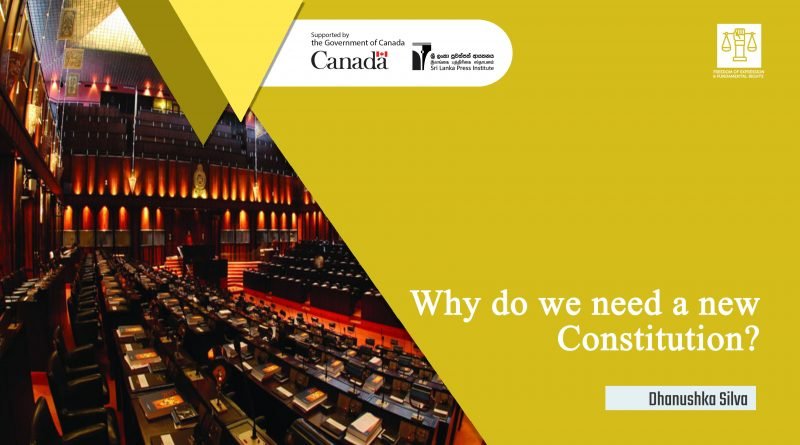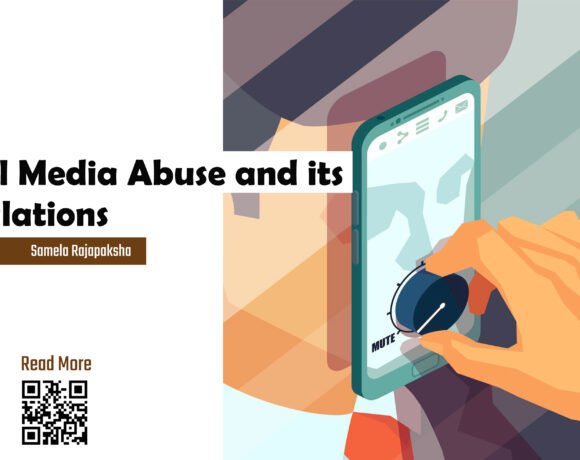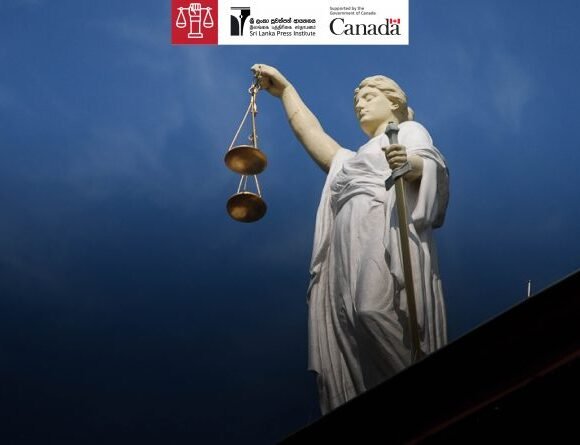
Why do we need a new Constitution?
Dhanushka Silva
Post-Independence, no Constitution in this country has been able to provide the Constitutional framework necessary for a just society. It is evident that it will be difficult to solve the baffling issues generated by the 1978 Constitution which are hitherto unresolved, outside the context of the drafting of a new Constitution. The incumbent Government lit hopes at the time of coming into power regarding the formulation of a new Constitution. Presently, public views are being sought for the purpose. Through this short article, it is hoped to discuss, through several main points, as to “why we need a new Constitution”. Through it, it is hoped to encourage the process of formulating a new Constitution which is presently ongoing.
A Constitutional Framework for a just society
Even though Sri Lanka has had the experience of two Constitutions post-Independence, both have similar lacunas. Among them, it is especially seen that these documents have firmly stood for the ideology of a certain political party, has supported the Sinhala Buddhist hegemony and has protected the Executive’s power. They are arrogant and are not people-friendly.
The 1972 Constitution was of the “Samagi (United) Government” while the 1978 Constitution was “J.R. Jayewardene’s Constitution”. Therefore, describing them with any deep meaning as Constitutions of the country or those of the people is not fair. In the least, they have not been able to represent the people’s aspirations and nether do they represent the majority’s will. The 1972 Constitution placed the Tamil language in the second place and raised Sinhalese to the top while the 1978 Constitution, by tying the State and religion together, made the Buddhist society supreme. The 1972 Constitution which formed the basis for a Prime Minister position, wanted to make Parliament powerful and towards this, it introduced a simple majority representation system. In parallel, because the Executive President was important for the 1978 Constitution, all other institutions were weakened and made both directly and indirectly, subservient to the Executive.
As a result, being governed under a Constitution which has been changed in a timely manner according to the transformation in the society, is an alien concept to Sri Lanka and by attempting to change the society according to the Constitution, social conflicts have arisen. Therefore, instead of a Constitution which represents the agenda of political parties and individuals, to experience a situation where the people aspirations are represented and a Constitution that is people friendly and leaning towards them, a new Constitution is essential.
1978 and basic weaknesses
When looking into baffling issues that have arisen with the 1978 Constitution, it can be seen that it is difficult for the present basic law to continue on a journey together with democracy. Further, the 1978 Constitution has not passed the basic test of Constitutionalism which every basic law of the world should pass. Friedrich Hayek defines Constitutionalism thus.
“The power of the Constitution is born out of the people. The representatives that are reflected in organizing the Constitution, build the institutional structure. The Constitution is a protection against all arbitrary actions of the Legislature and other institutions.”
In this definition, three main elements are identified by Hayek.
- The Constitution prepares the political institutions and basic institutional structure required for governance.
- It recognizes and affirms the minority as well as the majority’s diversity.
- It mentions the basic principles according to which society must be governed.
The Constitution that exists today has only properly considered the first of the three points. Thereby, the Tamil Language is given a position of equality nine years after the drafting of the Constitution (through the 13th Amendment to the Constitution).
When the initial flames of the war that would drag on for 30 years were seen, the Constitution was made by an entirely Sinhalese Legislature. But it is ruled and governed by Sinhalese, Tamils and Muslims. Harvard University Law Professor Eugene Rostow says that the Constitution should be a counter-majoritarian document. And that then, it would be more successful. Yet, the present basic law is only a document of the majority.
The question of supremacy
The first Article of the South African Constitution is thus. “South Africa is a Republic that respects the values contained in the Constitution.” Under this, the values of human respect, being non-racist, being non-sexist, the rule of law, multi-party democracy, accountability and transparency have been included in the Constitution as standards in a code, and thereby the supremacy of the Constitution has been guaranteed to the highest level. Its second Article is thus. “The Republic’s Constitution will be supreme. All unconstitutional laws not in keeping with the Constitution will be null and void.”
Article 16(2) of the Sri Lankan Constitution states the very opposite. That is that any existing written or unwritten law, even if unconstitutional, shall prevail. Although a number of judgments have stated that the Constitution is the basic legal document of the country, as per Article 84(1), the Parliament has the power to enact any law that is contrary to the basic law. This shows that a different institutional structure that can go beyond the level of the country’s basic law has been created. Since the Parliament is a symbol of power of the President in power, the President can arbitrarily enact laws that are completely in disregard of the basic law. A recent example of this is the loyal dictatorship that was created by the 18th Amendment to the Constitution which was approved in a day. The Constitution represents the common people. If a country’s basic law is not supreme that means that not only is the Constitution not supreme but that the people are not supreme and that the institutional structure is more powerful than the people. There is no more a democratic society that is unhealthy for a Constitutional democracy.
After the second youth uprising, the commission appointed in the 1990s to look into the issues of the youth presented a very important exemplary recommendation. That is that if the Government fails to set aside the money spent for a bullet to solve the issues of the youth, in another few decades the Government would have to spend large sums of money to import multi-barrels. That pronouncement came true in the same vein. As recommended by the Lessons Learnt and Reconciliation Commission, the main challenge that our country which is in a post-war state has is to look for a political solution for the national issue. It is to reach the edge of victory of this challenge that we need a new Constitution now.








